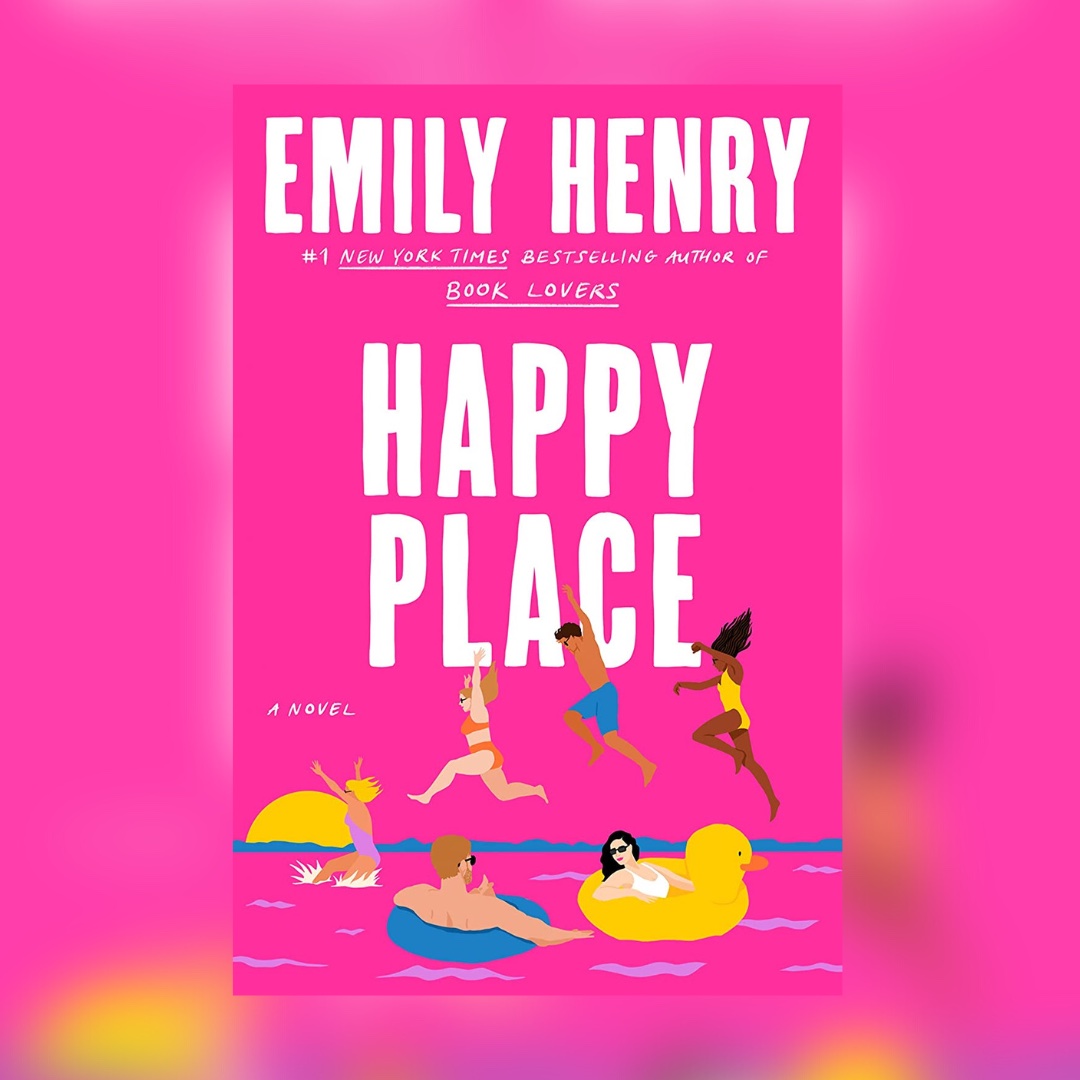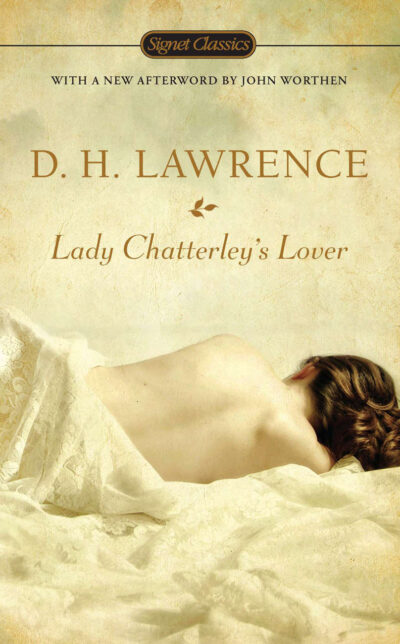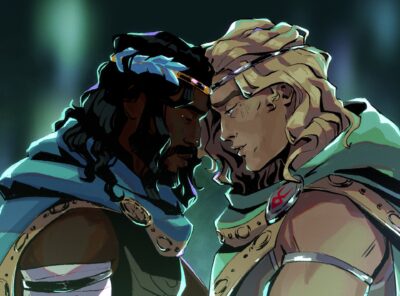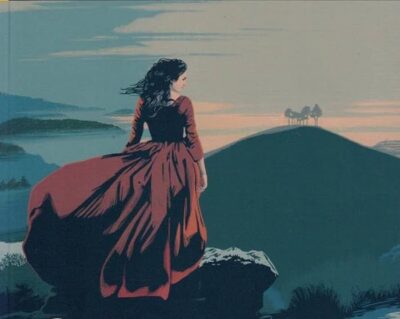“You are in all my happiest places.”
-Emily Henry, Happy Place
Happily In Love with Romance
My relationship with the romance genre is simple and I try to not overthink it too much. It’s something that I go to for enjoyment and comfort, but I will equally defend it if I’m given the opportunity. I never truly took the time to delve into what it is about the genre and more specifically, the books I read, that makes me love it so much. Up to this point it was just something that I decided I liked and it has become a central part of myself and my personality. But with the prompt to delve deeper into my favorite books and the aspects that keep me reading, I must now gain a deeper understanding of myself and the books I read.
I would like to preface this discussion with what I already know. I tend to read romance that has happy endings; contains substance and depth, whether it be in the characters or overall plot; and I’m not picky when it comes to tropes, plot, and characters. These statements remain true for the most part, but of course there are times where I will read amateur fan fiction, or formulaic books that are comparable to 50 others. It all comes down to my expectations and what I am looking to read at that moment.
This then brings me to Emily Henry. Henry’s books have sat comfortably on my top 10 list since I’ve read them, with their only competitor being the next Emily Henry book. With this said I couldn’t think of a better author who’s books I could break down to analyze what I like to read and why. I can honestly say that her books have ruined my expectations, but in like a good way, kinda. Every romance book I am thinking about reading, or am reading, I will compare to her books and her writing style. Which is a good thing because it shows I am making connections and focusing on what I am reading and what I like. But it can also be a bad thing because Emily Henry can only write Emily Henry books and I am just setting myself up fro disappointment if I am constantly comparing her work to that of other. But with this said I couldn’t think of a better author who’s books I could break down to analyze what I like to read and why, This is because I can’t really pinpoint what I am comparing and for what reasons. Through the rest of this post and my deep dive of Henrys’ books, I will hopefully come closer to an answer.
Emily Henry’s Version of Romance
Emily Henry is a modern contemporary romance writer who has gained fame for her simplistic cartoon covers and the more detailed and realistic tales of romance that lie behind them. But what is it that makes Henry’s book so distinct from the thousands of others that write and publish romance everyday? Writing a romance novel is no simple or easy task, but when it comes to writing realistic romantic fiction, the challenge only increases. Writing realistic anything within the fiction genre can be difficult and there’s always the possibility that the content won’t land with audiences the way that authors and publishers hope.
However, Emily Henry has a talent for portraying realistic scenarios regarding relationships, feelings, and life while still maintaining audience attention and praise. But the question is how does she do it? What about Emily Henry’s books and writing style allows people to find a level of happiness in realistic romantic fiction, where it has not been found before?
I cannot speak for every Emily Henry fan or romance reader, but I can say from my own experiences that Emily Henry’s romance doesn’t read like fiction romance, it reads real. But how does this make sense because isn’t most romance suppose to read as real and mirror real life? Yes, most romance explores people in realistic circumstance while taking place in “our world.” However, there are different ways that romance is told and how much of the real world and lives of the characters are explored. And lately it feels like some of the works that make up modern romance gloss over the lives, feelings, and world of the characters and will only focus on the relationship in question. Most will say that formulaic writing is to blame and in sense it is. But I think it is more so that authors are falling in line with the status quo and writing around the current trends that are selling.
In Emily Henry’s books, and especially her book Happy Place, she shifts from this and instead crafts her books to balance friends, feelings, past experiences, and importantly love in way that flows and fully captures the world and life of the characters.
“My best friends taught me a new kind of quiet, the peaceful stillness of knowing one another so well you don’t need to fill the space. And a new kind of loud: noise as a celebration, as the overflow of joy at being alive, here, now.”
-Emily Henry, Happy Place
But other authors do this too. So why does Henry’s books read differently?
The possible answer, she didn’t start writing romance to write romance. Her first marketed romance novel, Beach Read, was written because Henry felt it needed to be written, not to meet the trends and tropes, or to even follow traditional conventions of romance. She wrote Beach Read because she had a story that she simply wanted to write. According to an interview Henry did with Anna Kaplan from Today, “‘Publishing wasn’t the goal of this [sic] project'” and “‘…I hadn’t been a tried and true romance reader, so I didn’t really know where my books fit'” (Kaplan). She didn’t go into the writing process thinking these are the acceptable norms that I need follow and boxes I need to tick. She wrote the book the way she wanted to and the way that she wanted to tell the story and most importantly how she wanted to portray romance.
Why Emily Henry Sells Books
This is all great information, but what does it mean in terms of the readability and the responses that Henry’s books received from audiences. Well, it actually says a lot. When you come from a position where you are detached from the trends and standards it allows you a certain freedom in how you write and what you write. Henry was is in this position. She didn’t know what category her work would fit into or what standards she was meeting. She was writing the book the way she knew it needed to be, without the pressure of publishing or widespread opinions.
With this type of separation, comes innovation. Which is can be seen with and in response to Henry’s books. Henry didn’t write her books with the same formulaic approach that is typically associated with the romance genre. There were other layers of story, for multiple different characters, that overlapped and gave depth to the story. You had the experience of reading multiple perspectives at different points and then seeing how they fit together to make the connections and lives they had. It wasn’t just a story revolving around a couple becoming a couple. Henry writes about people falling in love and out of love the way people do everyday. And there is something refreshing about reading a romance story that can, and does, happen everyday just with different names and paths in life. And I think on a larger scale it is equally, if not more, refreshing as reader, and probably as a author, when you get to read or write something new and break out of the current trends and standards.
In Henry’s interview with Anna Kaplan from Today, Henry expands further on this when she says, “‘There are romance readers who don’t necessarily think that my books fit the true mold of romance, but I am very intentional about talking about them as romance because even though it’s changed a lot — thanks, I think, especially in Gen Z — there is still a little bit of denigration of the genre as a whole and there’s still a little bit of a stigma'” (Kaplan). Romance as a genre has been changing and morphing for as long as it has been a genre. The wonderful thing about literature is that there is always something new to explore and concepts that have yet to be discovered. Henry’s take on the romance genre has only gone to expand the genre’s capabilities and reach.
Henry not only went against the standards of romance books with her approach, but also in the way that she writes her books to mirror real life relationships circumstances. Many people are opposed to reading realistic fiction, even if it is romance, because that’s not what they are seeking. People typically read as a form of escapism from the real world and life circumstances, so to then have to experience the real world in their form of escape can be off-putting to some. I can’t completely speak to people’s reasons for questioning Henry’s novels and their approach to romance, but I can imagine that her realistic approach may play a part in it for this very reason. But there is something natural in both Henry’s writing and the crafting of the story and characters that can only be accomplished through mirroring the realities of life and love, which should be appreciated.
“People were complicated. They weren’t math problems; they were collections of feelings and decisions and dumb luck. The world was complicated too, not a beautifully hazy French film, but a disastrous, horrible mess, speckled with brilliance and love and meaning.”
-Emily Henry, Beach Read
The quote is one from Henry’s breakout romance novel Beach Read, and it is a quote that I believe accurately summarizes both Henry’s approach and the raging success of her books. And more importantly I believe it summarizes what factors, other than structure and style, that made me appreciate Henry’s books and made them an all time favorite of mine. The characters, the plot, and the setting are not one dimensional, but are instead rounded out in a way that real people, stories, and places are. And the way the three interact, mirror that same realness as well, which when used in connection to fiction romance creates a compelling story world.
Attribution Statement
Happy Place, Emily Henry, 2023. All Rights Reserved— Forever Young Adult, https://foreveryoungadult.com/book-report/happy-place-emily-henry/
Works Cited
Henry, Emily. Beach Read. Penguin Publishing Group, 19 May 2020.
Henry, Emily. Happy Place. Penguin Publishing Group, 25 Apr. 2023
Kaplan, Anna. “Emily Henry Calls Her Books ‘mini-Vacations’ – and People Can’t Stop Going on Them.” TODAY.com, Today Show, 27 Apr. 2023, www.today.com/popculture/books/emily-henry-interview-rcna80292.




